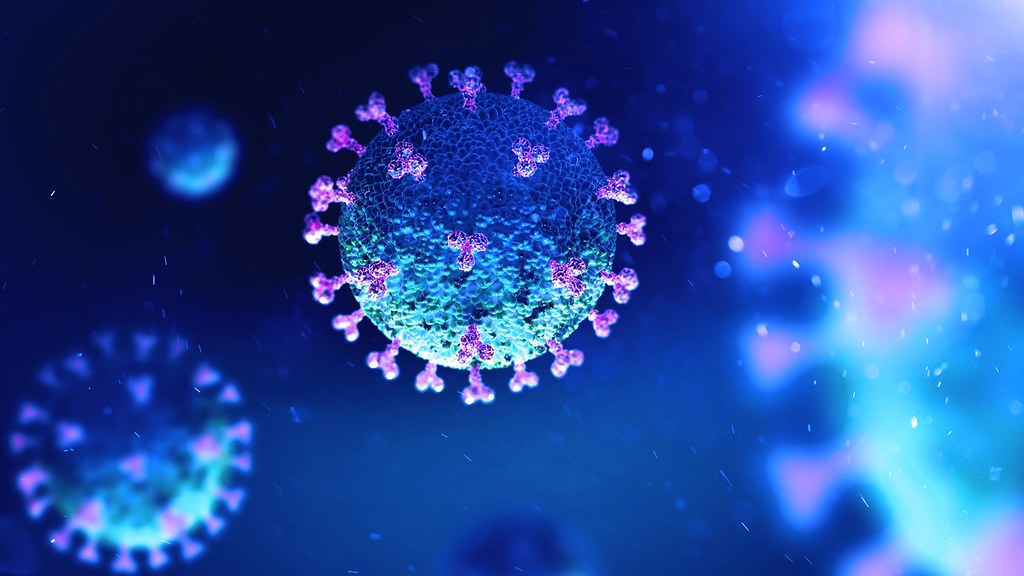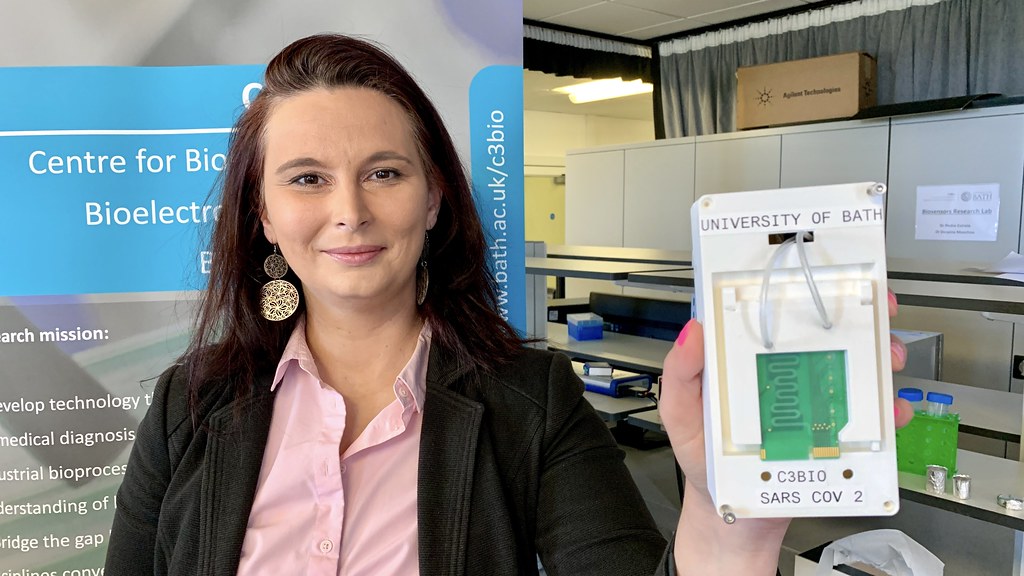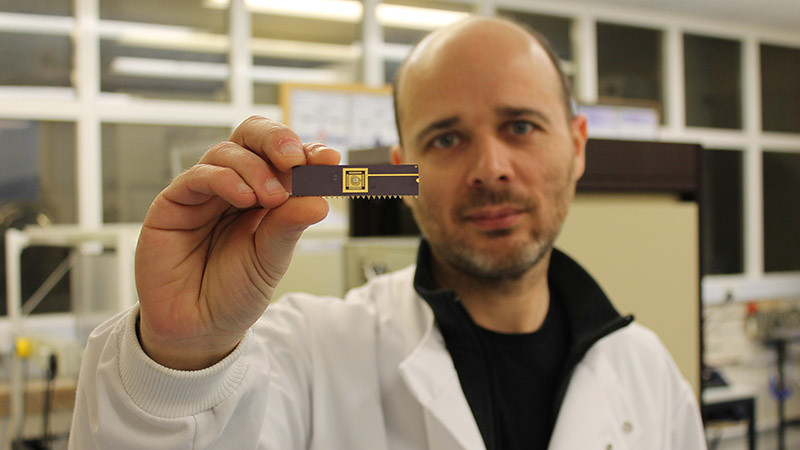Improving pandemic test and track response capability

Following the coronavirus outbreak in December 2019, COVID-19 has been reported on every continent. The virus, known as SARS-COV-2, has infected more than 240 million people and killed more than 4.9 million so far1.
Many of us are familiar with the nasal and throat swabs currently used to test for COVID-19. But here at Bath, our researchers have developed a ground-breaking method to test SARS-CoV-2 (the causative agent of COVID-19). The compact, handheld device is roughly the size of a mobile phone and is able to identify SARS-CoV-2 genes to produce fast, accurate results in minutes.2
The LoCKamp (lab-on-chip amplification) test device was developed by Dr Despina Moschou’s team in our Centre for Biosensors, Bioelectronics and Biodevices (C3Bio). It uses a LAMP assay developed at the University of Glasgow to complete each stage of a COVID-19 test - taking a sample, identifying specific DNA sequences, and displaying results - within ten minutes. The way it integrates all the test elements in a portable unit is unique and the first of its kind in the world. Its genetic analysis is superior to the protein-based rapid tests currently used.
Hospital partnership to begin clinical pilot study
The device is part of an ongoing project playing a crucial role in gathering reliable evidence to combat the global pandemic. In partnership with researchers at the Royal United Hospital (RUH) in Bath, it will be used in a clinical setting with real patient samples within the next couple of months.
Although the team’s focus is currently on COVID-19 detection and diagnosis, the LoCKamp device could be adapted to detect a wide range of infectious diseases, and similar approaches are being developed for cancer diagnosis and prognosis.
'We are very pleased to be collaborating with the University of Bath on this exciting and potentially very important project that could have massive benefits in our understanding of coronavirus infection and prevention in the future. The RUH is proud to be participating in this project as well as a number of ethically approved research studies to help discover more about the disease and if there are treatments to help those affected.' — Dr Kelly Spencer, Head of Research Operations, Royal United Hospital, Bath



